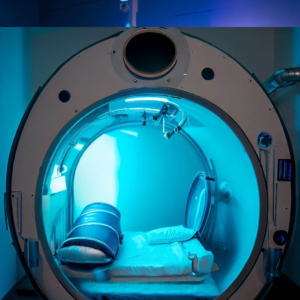Chronic Kidney Disease

Chronic kidney disease causes around 1.5% of deaths worldwide (Webster 2017). And yet it seems to get a lot less attention than other conditions. Kidney disease, unless severe, is usually a silent condition with no symptoms. As such, approximately 15% of adults in the United States have kidney disease, yet 90% don’t know it (CDC 2019). The disease is easily identified through standard blood tests that can be administered as part of an annual doctor’s exam.
The kidneys filter the blood eliminating wastes in the urine. Healthy kidneys will easily filter 23 gallons of fluid or more every day. In addition, the kidneys help regulate electrolytes, including sodium, potassium, magnesium and calcium. Beyond electrolytes, the kidneys also help regulate and maintain the acid/base balance of the blood. Kidney function is critical to maintain overall health.
Causes of Kidney Disease
Diabetes
The two most common causes of kidney disease in the United States are diabetes and high blood pressure (Webster 2017). While we don’t have a full understanding, it appears that high blood sugar causes damage to the energy factories in your kidney cells, the mitochondria. When this damage reaches a certain threshold, excess free radicals are produced. These free radicals are reactive compounds that appear to cause additional damage and the slow loss of kidney function which is the hallmark of the disease (Forbes 2008).
High Blood Pressure
High blood pressure damages the kidneys by damaging the blood vessels that feed them. This damage can include scarring which impairs kidney function. To maintain healthy kidneys it’s therefore important to keep your blood sugar and blood pressure under control.
Standard Treatments for Chronic Kidney Disease
While research does suggest the potential for the kidneys to heal in some situations, general medical approaches are aimed mostly at slowing the loss of function. Depending on the cause, medications for lowering blood pressure or controlling blood sugar are often used (Levey 2012).
Yet the question remains, is it possible to recover function in chronic kidney disease? While research is ongoing, some evidence does point at the possibility of improving function.
Potential Approaches for Improving Kidney Function
Diet
Like many things, diet seems to play a part in kidney disease. It’s also worth noting that once kidney disease is severe enough, limiting protein, sodium and potassium can be critical to slow progression of the disease. You should follow all dietary recommendations from your medical provider if you have chronic kidney disease.
However, before severe disease is in place, diet can play a role in prevention. Evidence suggests moving more towards a plant-based diet can help preserve kidney function. Reducing salt, sugar and red meat is also helpful (Kelly 2017).
A separate dietary approach, using a low-calorie, ketogenic diet also shows interesting benefits. Over three months, kidney disease patients lost weight on a ketogenic diet. More surprisingly, over a quarter of patients with mild kidney disease had normalization of kidney function. According to blood tests, they no longer had kidney disease (Bruci 2020). From the preliminary data, ketogenic diets might hold promise for improving function in some patients.
Blackseed (Nigella Sativa)

A small trial in patients with diabetic kidney disease were given blackseed oil and compared to controls. After 12 weeks, patients on blackseed oil improved kidney function by an impressive 55% (Ansari 2017). This study is begging for replication, since numerous other natural compounds, while potentially supporting the kidneys and reducing inflammation or free radicals have not been shown to directly improve kidney function.
Acacia Gum
Another promising herb for kidney disease is acacia gum. Acacia gum is a fiber secreted from acacia trees. The gum appears to be a promising prebiotic, meaning that it helps feed beneficial bacteria throughout the gastrointestinal tract.
In numerous animal studies of kidney disease, acacia gum has been shown to improve kidney function (Nasir 2013). While human trials are thin, there is one study that showed modest improvement in patients on dialysis for kidney disease (Ali 2008). It’s possible that acacia gum may help better in earlier stages of the disease before direct dialysis treatment is needed, but more studies could obviously help verify that assumption.
Conclusion
Kidney disease is a challenging condition to treat, as it often continues to progress, especially if blood sugar and blood pressure problems aren’t addressed effectively. It does appear that dietary approaches, including more vegetables, less sugar and ketogenic diets, might be helpful for some people with the condition. The data on black seed and acacia gum is pretty thin in human trials, but both may hold some promise for improving kidney function as well.



